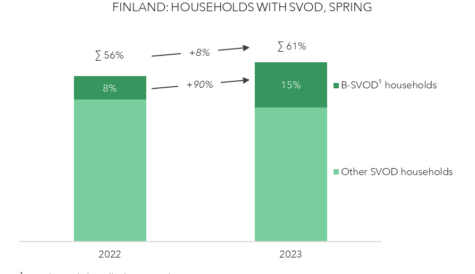
After more than 40 years of operation, DTVE is closing its doors and our website will no longer be updated daily. Thank you for all of your support.
Canal+ needs level playing field, says Vivendi chief
Canal+ needs and deserves a level playing field to compete with the likes of Altice as well as Netflix and other international players, including the right to retain exclusive rights, according to Vivendi CEO Arnaud de Puyfontaine.
Speaking to analysts after Vivendi turned in solid first-half results, boosted by a strong performance from Universal Music as well as signs of a slowdown in the decline of Canal+, De Puyfontaine said that Canal+ had to compete with “a local telco that wants to control both telecommunications and content and is launching a move channel from Luxembourg”, and that it was necessary that “everybody gets to benefit from the same rules” regarding the right to strike exclusive content deals.
France’s competition watchdog relaxed a number of restrictions on Canal+ in June, allowing it to strike exclusive premium channel deals with the likes of BeIN Sports and to retain exclusivity of series that it pre-finances. However, Canal+ remains obliged to make any service with which it has an exclusive deal available to a third-party provider that wants to include it in its offering.
De Puyfontaine said that in an industry that is increasingly “highly disrupted”, there was an “urgent need” for a revision of the rules. However, he said Vivendi had hoped for “a greater release of constraints” than the Autorité de la Concurrence had granted.
The “local telco” De Puyfontaine was referring to was Altice and its recent launch of movies and series channel, Altice Studio, which has been available on SFR’s platform since August 22.
Following the launch of Altice Studio, Altice CEO Michel Combes told Le Monde newspaper that he was opposed to striking an investment agreement with the French cinema industry on the same lines as Canal+’s commitment. However, Altice Media chief Alain Weill separately said that he was not opposed to striking a deal provided that France’s strick cinema windowing rules were relaxed.
Vivendi’s second quarter and first half results were strongly boosted by the performance of Universal Music, which grew its revenues for the first six months of the year by 14% in constant currency terms.
Canal+’s revenues declined by 2.4% during the first half, an improvement compared with the 5.5% drop in the first half of 2016. The pay TV operator’s performance was more marked in the second quarter, with a drop of 1.3% compared with a drop of 3.5% in the first quarter.
Canal+’s revenues for the first half amounted to €2.568 billion. The pay TV outfit’s individual subscriber base increased by 2.8 million year-on-year to 14 million, thanks to continued international growth and the group’s new distribution deals with Orange and Free. The international subscriber total grew by 309,000 year-on-year in the first half, contributing to a 6.6% increase in revenues in constant currency.
Revenues from pay TV in France dropped by 5.3%, taken lower by the reduced free-to-air window on the Canal+_ channel and a drop in domestic subscriber revenues. Advertising revenue also fell, due in part to a sanction imposed by media watchdog the CSA on the C8 channel. Production outfit Studiocanal’s revenues also dropped year-on-year.
Canal+’s EBITA for the first half amounted to €171 million, down from €288 million year-on-year, but with a stronger performance in the second half, which saw EBITA double compared with the first three months of the year.



